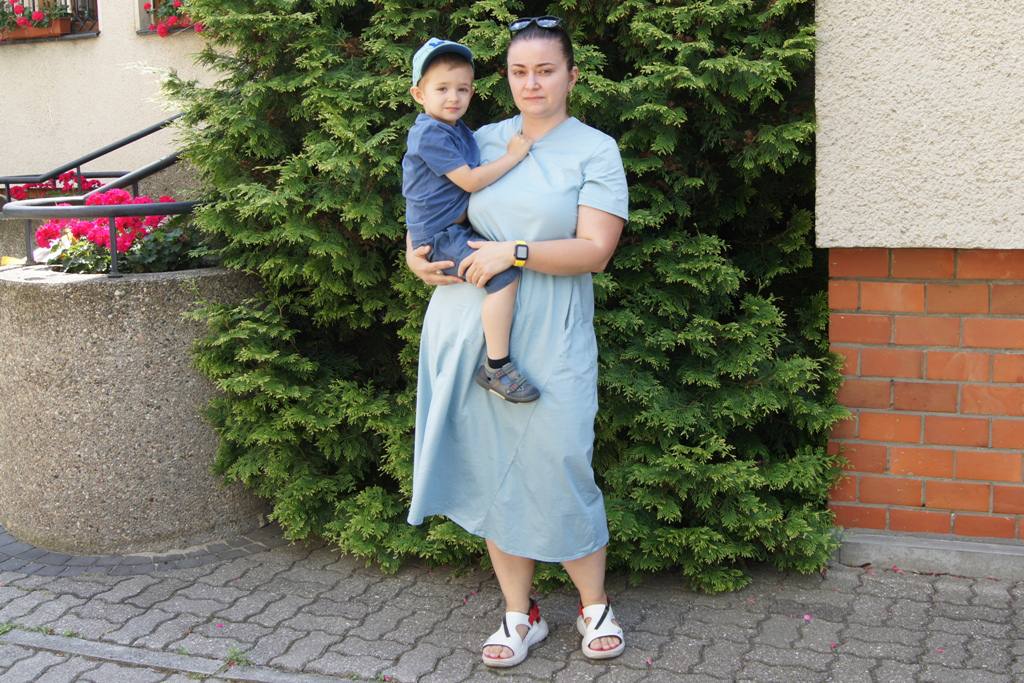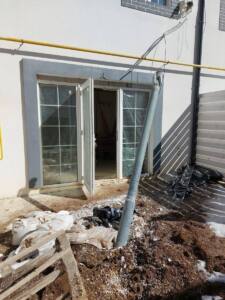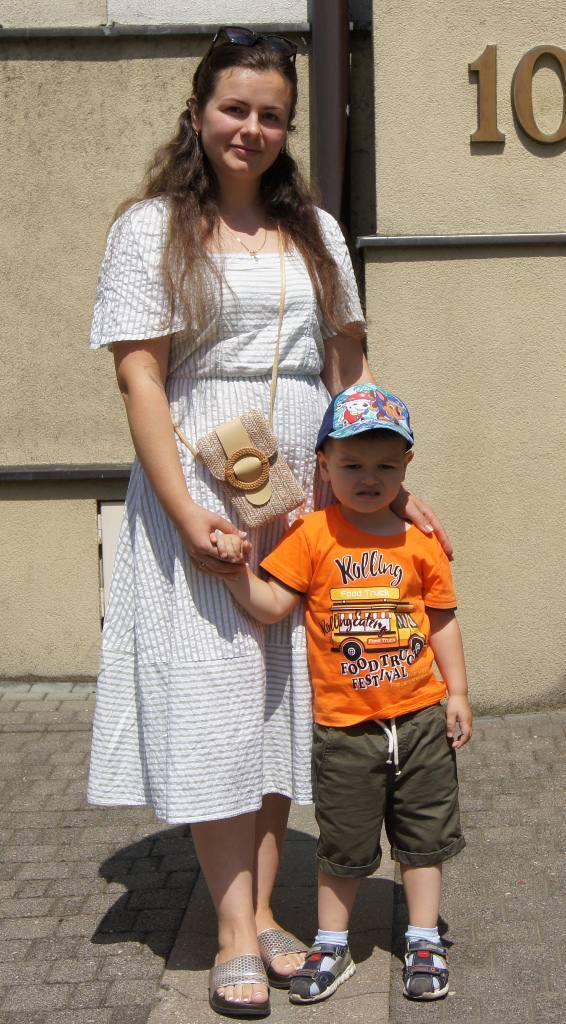31 July 2023
by Michał Karski

Anna and her son, refugees from Kharkiv inculded in the cash assistance program run by Diaconia Poland and Diakonie Katastrophenhilfe (photo: Michał Karski)
Under the cash assistance program, Diaconia Poland and Diakonie Katastrophenhilfe supported over 7,500 most vulnerable refugees from Ukraine. Among them were e.g. people with disabilities, facing serious illnesses, single parents, seniors. Here is the story of four of them.
On 14 February 2022 Viktoriya (name changed) heard the diagnosis – breast cancer. In addition, an infection set in during the biopsy. Ten days later, the troops of Russian regime attacked Ukraine. “On the very first day, they bombed an arms depot near our flat in Vinnytsia [west-central Ukraine]. The glass fell out of all our windows, but the flat itself is, fortunately, still standing,” she says.
Viktoriya was scheduled for surgery on 27 February. But after the start of hostilities, only the doctor who caused the infection at her biopsy was available. “I didn’t trust him. So I started looking for treatment options abroad,” she explains. She wrote e-mails to doctors in Spain and Poland. She received a positive response from Poland – the possibility of surgery in Słupsk, northern Poland.
She left with her mother and two daughters (10 and 2 years old) for Warsaw – they could live here thanks to an invitation from friends. In addition to the surgery, she had to undergo chemotherapy and radiotherapy. In addition, expensive medical tests had to be carried out. Due to the treatment, she has to spend the next five years in Poland. Because of her illness, her husband could also come to Poland. They have a lot of expenses. The difficult refugee fate is further complicated by her illness. In the spring, Viktoriya and her family were included in the cash assistance program for refugees from Ukraine, run by Diaconia Poland and Diakonie Katastrophenhilfe. “We really needed this help. I use the funds I receive for medicines, food, clothes and the needs of the children,” says Viktoriya.
Diaconia Poland and Diakonie Katastrophenhilfe have been running a cash assistance program for refugees from Ukraine since last year. The first edition took place in the summer of 2022, the second began in the spring of this year and is now coming to an end. The aim of the program was to support the most vulnerable refugees from Ukraine. Those who qualify for the program will receive three-month cash assistance in the form of prepaid debit cards. The amount of support depends on the size of the family (household). “Provided through debit cards that can be used in the stores for purchasing items or in the cash machines for money withdrawal, our assistance is offered in a dignified manner and with maximum flexibility for the refugees so that they can spend it according to their own needs and priorities,” says Hatem Efe, who coordinated the program in Poland on behalf of Diakonie Katastrophenhilfe.
Viktoriya is one of more than 7,500 people (over 2,600 families or households) who have been included in this assistance programme. Anna, Galyna and Yulia are also among them.

An unexploded missile in the garden of Anna’s house in Kharkiv after the attack of Russian troops (photo: Family archive)
Anna is originally from Kharkiv, eastern Ukraine. After the outbreak of full-scale war, she first moved with her family to Enerhodar, southeastern Ukraine. They lived under Russian occupation for a month. Her father became seriously ill. “We decided to leave from there in two cars. The Russians fired at us. Fortunately, no one was hurt,” she says. Her father and mother stayed in Zaporizhzhia, southeastern Ukraine, Anna and her three-year-old son went first to Lviv, western Ukraine, and then to Warsaw, Poland.
Like Viktoriya, Anna faces oncological problems. “I need funds for treatment, for rent,” she says. In the future, she wants to return to Ukraine, but not earlier than a year or two after the end of the war. She also shows a photo from the garden of her house in Kharkiv – a missile stuck in the ground inside. Unexploded.
Galyna and Yulia currently live in Kalisz, west-central Poland. Galyna is originally from Pavlohrad in the Dnipropetrovsk Oblast (province), east-central Ukraine. Her son and his wife and children remain in Ukraine. “I will use the funds from this assistance programme for basic needs, rent and food,” she says. She also plans to use part of it for rehabilitation of her arm, which she currently has under the public health service but will have to continue privately in the future.
Yulia comes from Hrebinka in the Poltava Oblast, east-central Ukraine. She is divorced and has a three-year-old son. In July 2022, she came to Poland with him. They first lived for a year in Kraków, southern Poland, then moved to her friend’s house in Kalisz. Yulia gets alimony, but expenses are still high. “I will use the money I receive from the assistance program primarily for my son’s needs. I have to buy him new clothes as he grows, pay for kindergarten. I would also like to save up, to pay for a holiday trip,” she says.
More than 6 million people have left Ukraine since the outbreak of the full-scale war. There are almost a million refugees from this country in Poland. Their situation varies, of course, but the refugee fate is never easy. A foreign place, a foreign language, a foreign culture, separation from loved ones, anxiety about their fate, uncertainty about tomorrow, often the baggage of traumatic experiences. In such a situation, dealing with additional problems, such as illness or disability, is particularly difficult. The cash assistance program run by Diaconia Poland and Diakonie Katastrophenhilfe was addressed exactly to people facing such challenges.
See also:
- Cash Assistance Program for refugees
- How Diaconia Poland supports Ukraine
- sontse.org – platform of the Cash Assistance Program
- Diakonie Katastrophenhilfe
